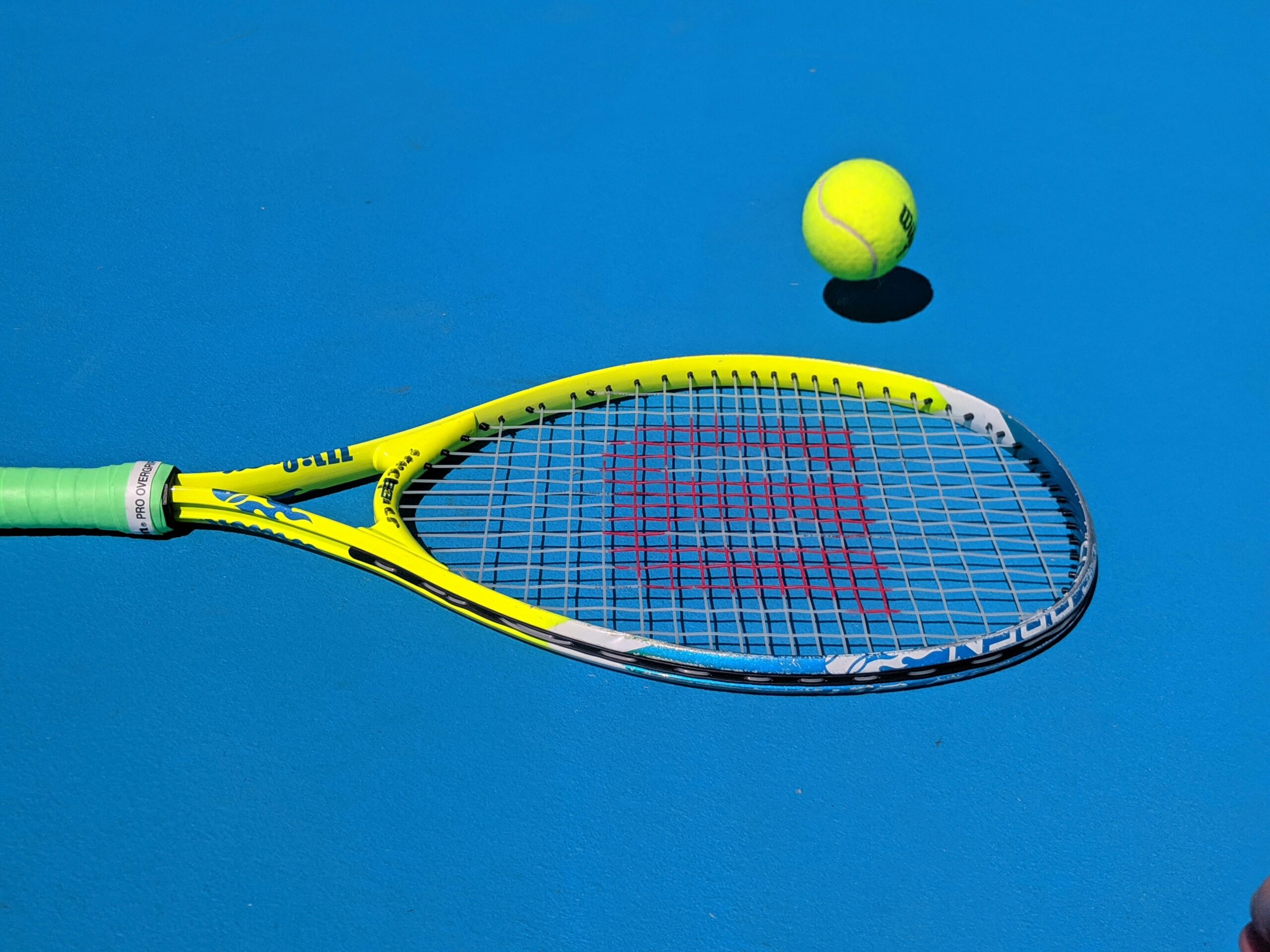Welcome to our guide on how to qualify for the International Tennis Federation (ITF) tournaments. Whether you’re a beginner looking to test your skills on an international stage or a seasoned player aiming to advance your career, understanding the eligibility criteria and navigating the qualification process can be crucial for success in the world of tennis. In this article, we will break down the key requirements and steps you need to take in order to qualify for ITF tournaments and make your mark in the tennis world. Let’s get started on your journey to ITF qualification! How do you qualify for the ITF?
Introduction
So you’re interested in qualifying for the International Tennis Federation (ITF), but you’re not sure where to start. Don’t worry, we’ve got you covered! In this guide, we’ll break down everything you need to know about how to qualify for the ITF and achieve your tennis dreams.
Understanding the ITF
The International Tennis Federation (ITF) is the governing body of world tennis, overseeing the rules and regulations of the sport on a global scale. The ITF is responsible for organizing prestigious tournaments such as the Grand Slam events, Davis Cup, and Fed Cup. Qualifying for the ITF is a significant accomplishment for any aspiring tennis player.
Getting Started
Before you can qualify for the ITF, you need to understand the different levels of competition within the organization. The ITF has a tiered system that ranges from junior tournaments to professional circuits. It’s essential to know where you stand in terms of skill level and experience before setting your sights on ITF qualification.
Junior Tournaments
If you’re a junior player looking to qualify for the ITF, you’ll need to start by competing in junior tournaments. These events are designed for players under the age of 18 and serve as a stepping stone to higher-level competition. Junior tournaments are an excellent way to gain experience, improve your skills, and catch the attention of talent scouts.
Professional Circuits
For more experienced players looking to qualify for the ITF’s professional circuits, you’ll need to start by competing in lower-tier tournaments such as the ITF Futures or ITF Pro Circuits. These events provide a platform for emerging talent to showcase their skills and earn valuable ranking points. Qualifying for the professional circuits is a significant milestone for any tennis player aspiring to compete at a higher level.

Qualifying Criteria
To qualify for the ITF, you’ll need to meet certain criteria set forth by the organization. These criteria may vary depending on the level of competition you’re aiming for, whether it be junior tournaments or professional circuits. It’s essential to familiarize yourself with the specific requirements for each category to ensure you’re eligible to compete.
Junior Tournaments
For junior tournaments, the qualifying criteria typically revolve around age restrictions, ranking points, and tournament experience. Players must meet the age requirements for each event and have a minimum number of ranking points to be eligible to compete. Additionally, players may need to have participated in a certain number of junior tournaments to qualify for higher-level events.
Professional Circuits
Qualifying for the ITF’s professional circuits requires a more rigorous set of criteria, including ranking points, tournament results, and playing experience. Players must achieve a certain ranking to gain entry into professional events and may need to compete in qualifying matches to secure a spot in the main draw. Earning ranking points through successful tournament performances is crucial for advancing to higher-level competitions.
Tournament Structure
Once you’ve met the qualifying criteria, it’s essential to understand the structure of ITF tournaments to maximize your chances of success. The tournament format may vary depending on the level of competition and the specific event you’re participating in. Familiarizing yourself with the tournament structure will help you prepare for each match and navigate through the competition effectively.
Match Format
ITF tournaments typically follow a knockout format, where players compete in single-elimination matches until a winner is determined. Matches are usually best of three sets, with tiebreakers played if necessary to decide close sets. Understanding the match format is essential for strategizing your gameplay and conserving energy throughout the tournament.
Draw Size
The draw size of an ITF tournament refers to the number of players competing in the event. Draws can range from small, intimate competitions to larger, more competitive fields. Knowing the draw size will give you an idea of how many matches you’ll need to win to reach the final rounds. Smaller draws may offer a quicker path to the championship, while larger draws provide more opportunities to test your skills against a diverse range of opponents.
Tournament Preparation
Preparing for an ITF tournament requires careful planning and attention to detail to ensure you’re in peak condition for competition. From physical conditioning to mental fortitude, there are several key areas to focus on when getting ready for a tournament. By honing your skills and sharpening your focus, you’ll be better equipped to handle the challenges of tournament play and achieve success on the court.
Physical Conditioning
Physical fitness is a crucial aspect of tournament preparation, as tennis is a demanding sport that requires strength, speed, and endurance. Players should focus on building their stamina, agility, and strength through a combination of cardio, strength training, and flexibility exercises. Maintaining a healthy diet, staying hydrated, and getting adequate rest are also essential for peak performance during tournaments.
Mental Preparation
In addition to physical conditioning, mental preparation is vital for success in ITF tournaments. Players must cultivate a winning mindset, focusing on confidence, concentration, and resilience to overcome challenges on the court. Visualization techniques, positive self-talk, and pre-match routines can help players stay calm and focused under pressure. Developing mental toughness is as crucial as honing your physical skills when preparing for tournament competition.
Tournament Performance
Once you’re on the court competing in an ITF tournament, it’s time to put your skills to the test and showcase your talent against other players. Tournament performance is a combination of skill, strategy, and mental fortitude, all of which are essential for success in competitive tennis. By staying focused, adapting to different playing styles, and maintaining a positive attitude, you’ll be able to perform at your best and maximize your chances of winning matches.
Skill Development
Tournament performance is a reflection of the skills you’ve developed through training, practice, and match experience. Players should focus on honing their strokes, footwork, and shot selection to excel in competitive matches. Working with a coach, analyzing match footage, and participating in drills can help you refine your technique and elevate your game to the next level. Continuous skill development is key to improving your tournament performance and achieving success on the court.
Strategy Execution
Executing a winning strategy is essential for performing well in ITF tournaments. Players should analyze their opponents’ strengths and weaknesses, adjust their game plan accordingly, and remain flexible in their approach to each match. Developing a tactical mindset, adapting to different playing conditions, and making quick decisions on the court are all crucial aspects of successful strategy execution. By outsmarting your opponents and staying one step ahead, you’ll be able to control the flow of the match and seize critical opportunities to secure victory.
Tournament Success
Achieving success in ITF tournaments requires dedication, hard work, and a passion for the game of tennis. Whether you’re competing in junior events or professional circuits, the journey to qualification is a challenging yet rewarding experience that will test your skills and character on and off the court. By following the guidelines outlined in this guide, you’ll be on the right path to qualifying for the ITF and making your mark in the world of competitive tennis.
Celebrating Achievements
When you reach your goal of qualifying for the ITF, take a moment to celebrate your achievements and acknowledge the hard work and dedication that got you there. Whether you win a tournament, achieve a new ranking milestone, or simply improve your game, each success is a testament to your talent and perseverance as a tennis player. Share your accomplishments with friends, family, and fellow tennis enthusiasts to inspire others and showcase your passion for the sport.

